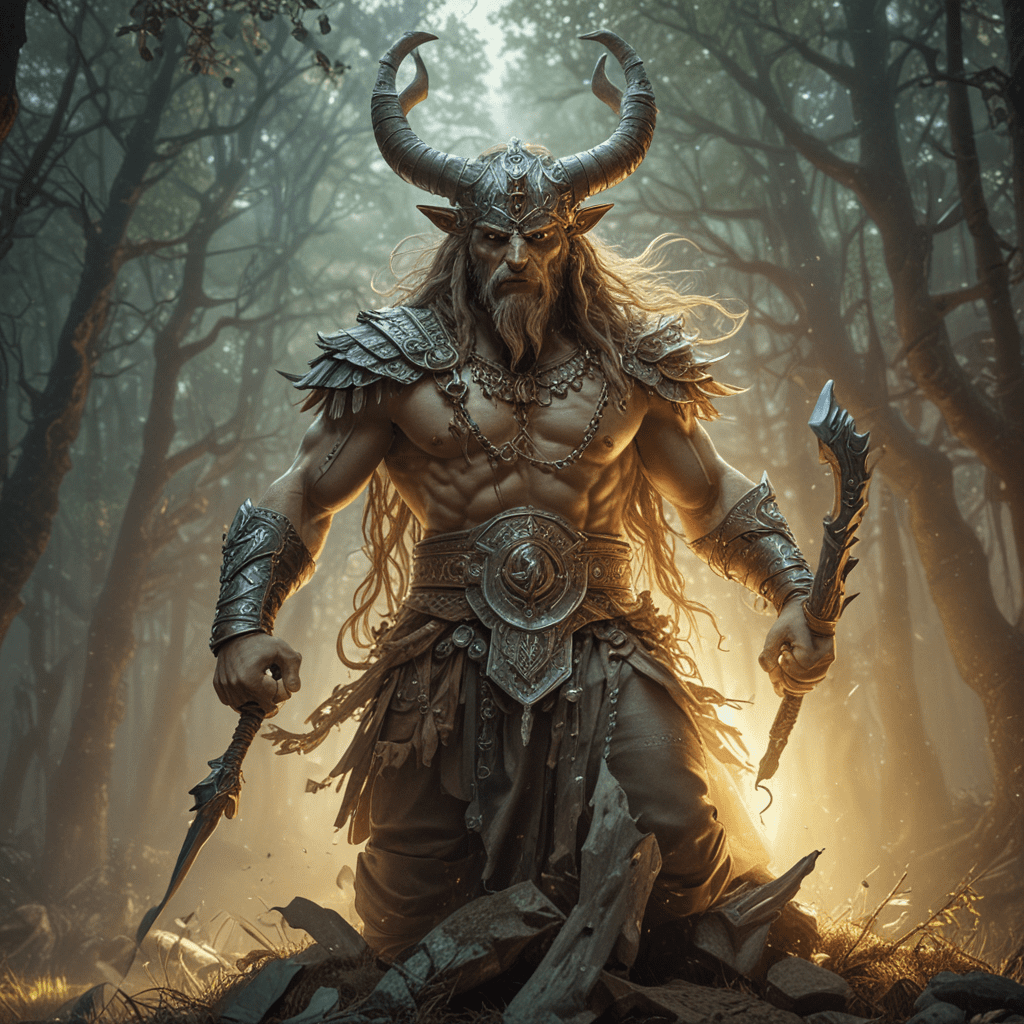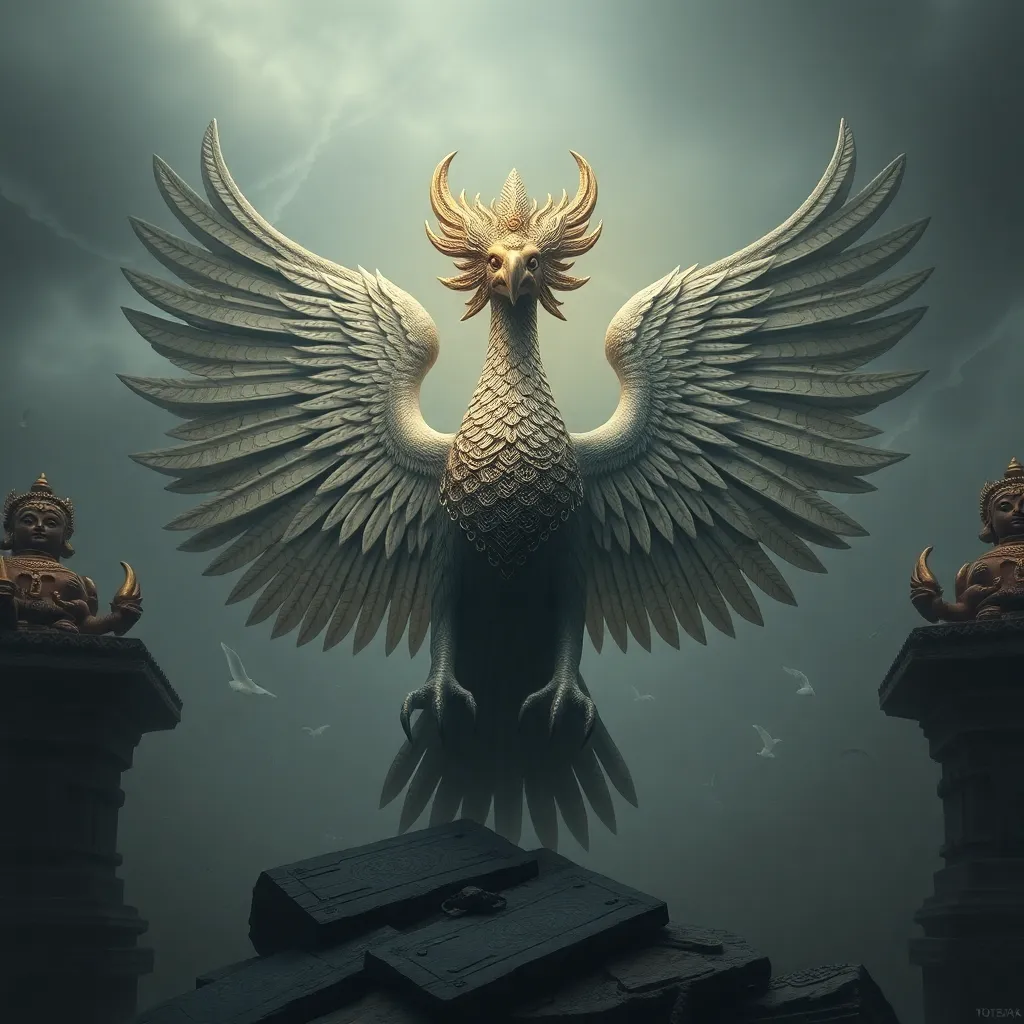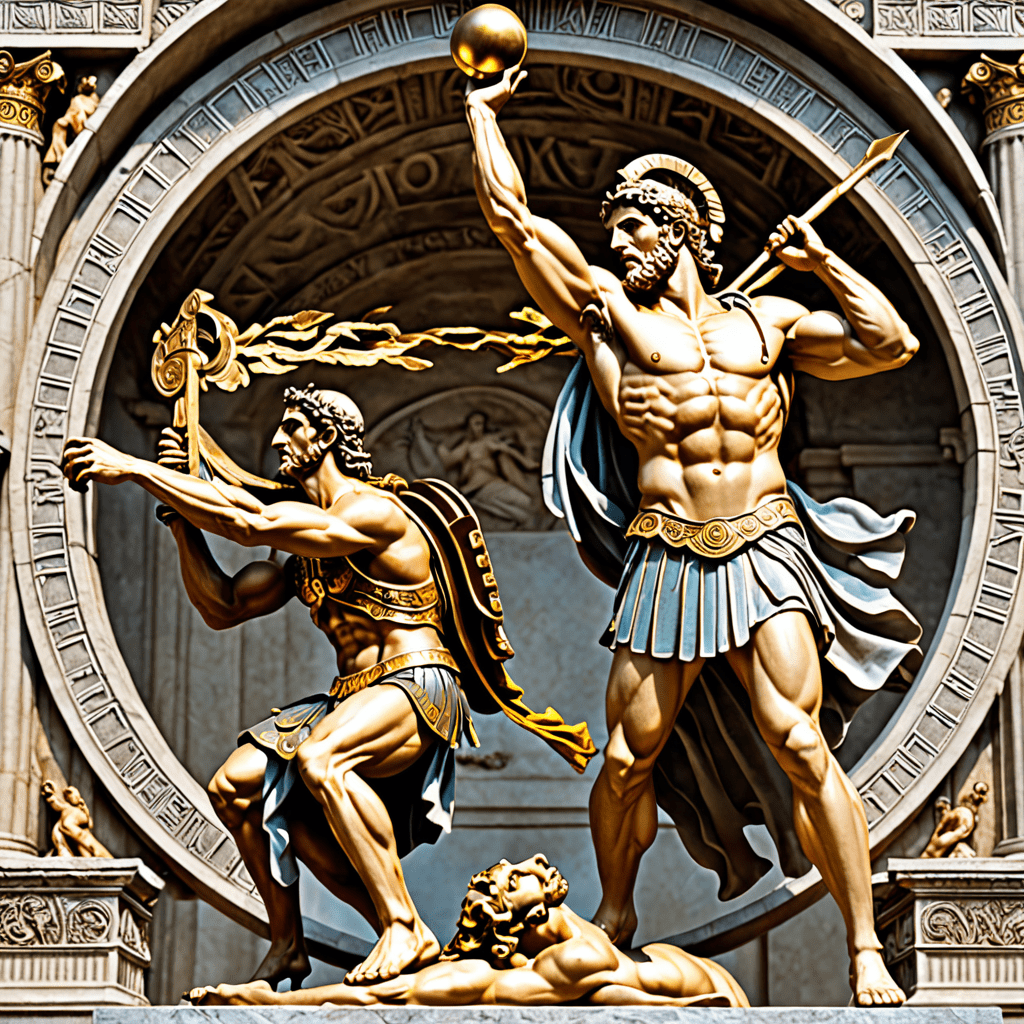Filipino Mythology: The Powerful Influence of Ancestral Spirits
The Spirit World in Filipino Mythology: Ancestral Spirits as Guardians and Guides
In Filipino mythology, the spirit world is a vibrant and interconnected realm that plays a crucial role in shaping everyday life. This world is populated by a diverse cast of spirits, including deities, mythical creatures, and most importantly, ancestral spirits. These spirits are not simply ethereal beings; they are believed to be the guardians and guides of the living, their presence felt throughout generations. They represent a powerful link between the past, present, and future, influencing beliefs, values, and cultural practices.
Filipino mythology envisions a world where the boundaries between the physical and spiritual realms are porous. The spirit world is not a distant, abstract concept but a tangible force that permeates every aspect of existence. Ancestral spirits, in particular, are deeply intertwined with the fabric of Filipino society, their presence felt in everyday rituals, traditions, and social interactions.
The Role of Ancestral Spirits: Beyond the Grave, A Continued Connection
While death marks the transition from the physical realm to the spiritual realm, it does not signify an end to the connection between the living and the departed. In Filipino belief, the souls of the deceased, known as "kaluluwa," continue to exist in the spirit world, where they watch over their families and loved ones. These ancestral spirits are believed to possess knowledge, wisdom, and power that can be accessed by the living through rituals, prayers, and offerings.
Ancestral spirits are not merely passive observers; they actively participate in the lives of their descendants. They are seen as protectors, offering guidance and support in times of need. They are also believed to play a role in the prosperity and well-being of the family, their presence bringing blessings and good fortune. Conversely, neglecting or disrespecting ancestral spirits is believed to invite misfortune and misfortune.
Ancestral Spirits in Daily Life: Offerings, Rituals, and Respect
The influence of ancestral spirits is evident in numerous aspects of Filipino daily life. Offerings known as "handog" are routinely presented to appease and honor them. These offerings typically include food, drinks, and other items that were cherished by the deceased during their lifetime. Offerings are made during special occasions like birthdays, anniversaries, and holidays, as well as during times of hardship or crisis.
Rituals such as "pamamanhikan" (pre-wedding rituals) and "paglalamay" (wakes) involve invoking the blessings of ancestral spirits. These rituals serve as a way for families to connect with their ancestors, seeking their guidance and approval in life's important transitions. The act of remembering and honoring ancestral spirits is seen as a sacred duty, a way to maintain harmony and balance between the living and the departed.
The Importance of Family Lineage: Ancestral Spirits as the Keepers of History and Tradition
Family lineage plays a central role in Filipino culture, and ancestral spirits are deeply connected to the continuity and preservation of family history and traditions. They serve as the custodians of knowledge and wisdom passed down through generations, offering a connection to the past and a sense of belonging within a larger family structure.
The concept of "pamilya" (family) extends beyond immediate blood relatives, encompassing extended families, ancestors, and even the spirits of those who have passed on. This sense of community and shared history is reinforced by the belief in ancestral spirits, who serve as a reminder of the enduring bonds that connect generations.
The Concept of “Kaluluwa” and its Connection to Ancestral Spirits: The Soul and the Afterlife
The concept of "kaluluwa" (soul) is fundamental to understanding Filipino beliefs about ancestral spirits. The "kaluluwa" is not merely a disembodied spirit; it is an integral part of a person, representing their essence, individuality, and connection to the spiritual realm. When a person dies, their "kaluluwa" is believed to travel to the spirit world, where it will continue to exist as an ancestral spirit.
The "kaluluwa" is also believed to be capable of reincarnation, its essence returning to the physical realm in a new form. This belief underscores the cyclical nature of life and death, emphasizing the enduring connection between the living and the departed. It also underscores the importance of respecting the "kaluluwa" of the deceased, as it represents their continued presence in the spirit world.
Ancestor Veneration: A Balancing Act Between Respect and Fear
Ancestor veneration in Filipino culture is a delicate balance between respect and fear. While ancestors are seen as benevolent guardians, their displeasure can also bring misfortune. This duality is evident in the rituals and practices surrounding ancestor worship.
Respect for ancestors is demonstrated through offerings, prayers, and rituals. Families strive to maintain harmonious relationships with their departed loved ones, believing that their blessings bring prosperity and good fortune. This reverence is deeply rooted in the belief that ancestors possess knowledge and power that can be accessed through communication and offerings.
However, fear also plays a role in ancestor veneration. The belief that ancestors can punish disrespect or neglect creates a sense of obligation to appease them. Failure to honor ancestral spirits is seen as a grave offense, potentially inviting misfortune, illness, or even a vengeful spirit.
This delicate balance between respect and fear underscores the complex relationship between the living and the departed in Filipino culture. It reflects the belief that ancestors hold significant influence over the lives of their descendants, demanding both reverence and caution.
Theories of Ancestor Veneration: Psychological and Sociological Perspectives
The practice of ancestor veneration in Filipino culture has sparked interest among scholars, who have explored its psychological and sociological underpinnings. These theories offer insights into the motivations behind this widespread belief.
Psychological perspectives suggest that ancestor veneration provides a sense of continuity and belonging. By connecting with their ancestors, individuals can find comfort and support in times of uncertainty. The belief in a continuing presence of loved ones after death can offer solace and reaffirm the enduring bonds of family.
Sociological perspectives emphasize the role of ancestor veneration in maintaining social order and cohesion. By fostering a sense of shared history and responsibility, ancestor worship reinforces family ties and promotes community solidarity. It also provides a framework for regulating behavior, encouraging respect for elders and adherence to traditional values.
These perspectives highlight the multifaceted nature of ancestor veneration, demonstrating its psychological and social functions in shaping Filipino culture and identity.
The Influence of Ancestral Spirits on Filipino Culture: Beliefs, Values, and Practices
Ancestral spirits have profoundly shaped Filipino culture, influencing beliefs, values, and practices across various aspects of life. Their presence is felt in:
Family values: The importance of family, respect for elders, and the concept of "utang na loob" (debt of gratitude) are deeply intertwined with ancestral spirits. These spirits are seen as guardians of family traditions and values, reminding individuals of their responsibilities to their lineage.
Social interactions: Ancestral spirits influence social interactions, shaping norms and expectations. The belief in their watchful presence encourages ethical behavior and discourages actions that might displease them.
Religious beliefs: While Catholicism is the dominant religion in the Philippines, indigenous beliefs about ancestral spirits persist, often integrated into Christian practices. This syncretic approach reflects the enduring influence of traditional beliefs.
Artistic expressions: Ancestral spirits are depicted in various forms of art, including literature, music, and dance. These expressions reflect the deep respect and awe associated with these powerful beings.
Ancestral spirits are woven into the fabric of Filipino culture, shaping its social fabric, values, and everyday practices. Their influence remains strong, demonstrating their enduring relevance in contemporary society.
The Evolution of Ancestral Spirit Beliefs: Indigenous Traditions and Colonial Influences
Ancestral spirit beliefs in the Philippines have evolved over time, influenced by indigenous traditions and colonial influences.
Indigenous traditions: Prior to colonization, Filipinos had a rich system of beliefs about ancestral spirits. These spirits were revered as guardians, protectors, and intermediaries between the living and the supernatural realm. Indigenous rituals, offerings, and practices were centered around honoring and appeasing these spirits.
Colonial influences: The arrival of Spanish colonizers in the 16th century brought about significant changes in Filipino society. Catholicism was introduced, leading to the integration of Christian beliefs with indigenous traditions. While some aspects of ancestor veneration were demonized, others were incorporated into Christian practices, resulting in a hybrid religious system.
Post-colonial period: Following independence, the Philippines experienced a renewed interest in its indigenous heritage, including ancestral spirit beliefs. This resurgence led to a greater appreciation of these traditions and their role in shaping Filipino culture.
Ancestral spirit beliefs have undergone a complex evolution, reflecting the dynamic interplay of indigenous traditions and colonial influences. However, these beliefs remain an integral part of Filipino culture, demonstrating their enduring power and resilience.
Ancestral Spirits in Contemporary Filipino Society: Continued Relevance and Adaptations
Despite modernization and globalization, ancestral spirit beliefs continue to hold relevance in contemporary Filipino society. While some aspects of traditional practices may have been adapted or modernized, the core belief in the power and influence of ancestors remains strong.
Continued relevance: Ancestor veneration provides a sense of continuity, belonging, and guidance in a rapidly changing world. It offers comfort and support during times of personal challenges and societal transformations.
Adaptations: Traditional practices are often adapted to modern contexts. Offerings may be made in more modern forms, and rituals may be simplified or performed in different settings. However, the underlying principles of respect, reverence, and seeking ancestral guidance remain constant.
Religious syncretism: The integration of ancestral spirit beliefs into Christian practices demonstrates the ongoing relevance of these traditions. This syncretic approach allows Filipinos to embrace both indigenous and colonial influences while maintaining their cultural identity.
Ancestral spirits remain a powerful influence in contemporary Filipino society. While their role may have evolved in response to modern influences, they continue to shape cultural identity, values, and practices.
FAQ
- Why are ancestral spirits so important in Filipino culture?
- Ancestral spirits are seen as guardians, protectors, and guides for their descendants. They hold knowledge, wisdom, and power that can influence the lives of the living.
- How do Filipinos honor their ancestors?
- Through offerings (handog), prayers, and rituals like "pamamanhikan" (pre-wedding rituals) and "paglalamay" (wakes).
- What happens to a person's soul after death?
- The soul (kaluluwa) is believed to continue existing in the spirit world and becomes an ancestral spirit.
- Are ancestral spirits always benevolent?
- While generally seen as benevolent, they can also be vengeful if they are not respected or if their wishes are not heeded.
- How have ancestral spirit beliefs changed over time?
- Colonial influences led to the integration of Christian beliefs with indigenous traditions. However, ancestral spirit beliefs continue to hold relevance in contemporary Filipino society.




